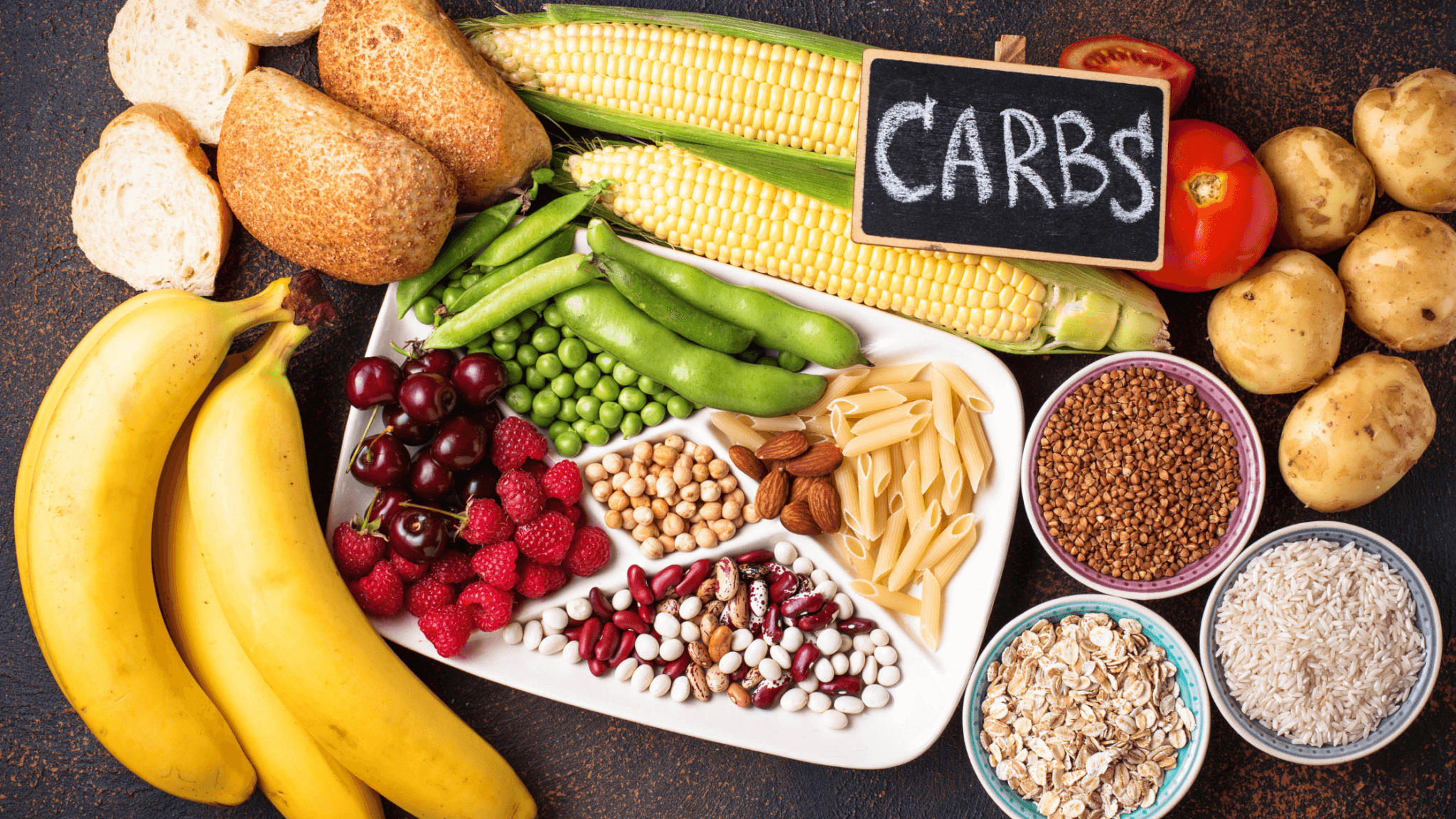Let’s break down carbohydrates today. The FACTS not the bullsh*t from false media and medical marketing!
So what is a carb? A carbohydrate is a macronutrient found in many foods and beverages. Most occur naturally in plant based foods such as grains and fruit in the form of fructose or sugar.
Common sources of naturally occurring carbohydrates include:
- Fruits
- Vegetables
- Milk
- Nuts
- Grains
- Seeds
- Legumes
There are three main types of carbohydrates:
- Sugar. Sugar is the simplest form of carbohydrate and occurs naturally in some foods, including fruits, vegetables, milk and milk products. Types of sugar include fruit sugar (fructose), table sugar (sucrose) and milk sugar (lactose).
- Starch. Starch is a complex carbohydrate, meaning it is made of many sugar units bonded together. Starch occurs naturally in vegetables, grains, and cooked dry beans and peas.
- Fiber. Fiber also is a complex carbohydrate. It occurs naturally in fruits, vegetables, whole grains, and cooked dry beans and peas.
Carbohydrates tend to get a bad reputation in the health and fitness community, but not all carbs are bad, some are just healthier than others. Just like any other macronutrient, some are better than others due to their nutrient density profile. Because of their health benefits they have a rightful place in your diet. In fact, many people need carbohydrates to function well. I know I perform a lot better when I have a decent amount in my diet.
Despite their bad rap, carbohydrates are vital to your health for a number of reasons.
Providing energy
Carbohydrates are your body’s main fuel source. During digestion, sugars and starches are broken down into simple sugars. They’re then absorbed into your bloodstream, where they’re known as blood sugar (blood glucose).
From there, glucose enters your body’s cells with the help of insulin. Glucose is used by your body for energy, and fuels all of your activities — whether it’s going for a jog or simply breathing. Extra glucose is stored in your liver, muscles and other cells for later use.
Protecting against disease
Some evidence suggests that whole grains and dietary fiber from whole foods help reduce your risk of cardiovascular diseases. Fiber may also protect against obesity and type 2 diabetes. Fiber is also essential for optimal digestive health. It easy terms it gives you better poops.
Controlling weight
Evidence shows that eating plenty of fruit, vegetables and whole grains can help you control your weight. Their bulk and fiber content aids weight control by helping you feel full on fewer calories. Contrary to what low-carb diets claim, very few studies show that a diet rich in healthy carbohydrates leads to weight gain or obesity.
Here’s how to make healthy carbohydrates work in a balanced diet:
- Emphasize fiber-rich fruits and vegetables.
- Choose whole grains.
- Stick to low-fat dairy products.
- Eat more legumes.
- Limit added sugars.
And there you have it! No, carbs aren’t the devil, and no they don’t make you fat. It’s all about making better choices and being more aware of what’s on the label.
